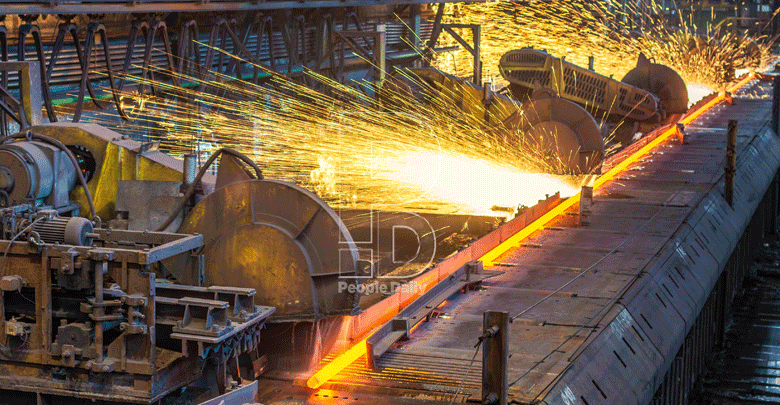High cost of inputs hurting steel sector

Bobby Johnson
The demand for steel is increasing in the country, as government-driven infrastructural development, commercial and residential buildings surge.
Steel is a core piece of the modern economy. It is used as a paradigm to gauge the overall economic status of a country, as well as an indicator of the investments dedicated to infrastructure and subsequently, a measure of developmental progress and stability.
The direct and indirect consumption of steel in the country is projected to increase, as the country embarks on the development activities as envisioned in Vision 2030.
The sector, therefore, has an opportunity to enhance the country’s infrastructure through the purchase of locally manufactured steel products, further and to bolster the growth of players within the value chain. Consequently, create jobs and wealth for many in the country.
Despite this role, the sector continues to face various challenges that hinder its competitiveness. Key among them is the cost of raw materials.
Kenya has for years imported raw materials to produce steel products. This makes the sector subject to changes in global prices.
Presently, the domestic iron ore supply shortage in China and India has pushed up the prices to a record high.
The World Bank estimates that iron-ore prices will be 30 percent higher this year compared to last year and consequently, lead to an increase in the cost of imported raw materials.
Closely linked to this is the impact of the weakening Kenyan shilling. The price of imported raw materials increased by at least 4 percent on account of the exchange rate depreciation.
Another contributing factor to the increasing prices is high transport and logistics costs.
Following Covid-19 containment measures, sea freight cost rose by 57.14 per cent from $40 (Sh4,300) per tonne in March 2020 to $70 per tonne in May 2021.
Additionally, transport from Mombasa to Nairobi increased from $25 per tonne in March 2020 to $30 per tonne in May 2021, mainly attributed to the rise in diesel pump price.
As the Kenya Association of manufacturers, we acknowledge that external factors are driving the prices of locally produced steel.
Furthermore, neither manufacturers nor the government have control over these costs. However, it is critical that the government supports the steel sector, which is currently absorbing the increasing costs.
The government can support the sector in three main ways. First, by reducing the cost of electricity to US cents 9/kWh.
Electricity is a key input in the manufacturing process however, the cost remains high.
To enable access to quality, affordable and reliable energy, the government needs to strive to review the Time-of-Use policy to bring on board more industry beneficiaries by reworking a new baseline based on current industry consumption data to create predictability. Additionally, by reinstating the electricity rebate program.
Second, zero-rating Import Declaration Fee (IDF) and Railway Development Levy (RDL) for raw materials.
The cost of imported industrial inputs is a key determinant of industry’s competitiveness.
Imported raw materials attract IDF and RDL of 1.5 per cent each, amounting to a cost-disadvantage of three per cent.
If both IDF and RDL are zero-rated, this will reduce the cost-competitiveness disadvantage.
Lastly, we must unearth the potential of the sector by incentivising local industries to harvest raw materials from local deposits of iron-ore and coal. This however requires huge capital investments.
A few local industries have set out as pioneers to make this a reality. For them to succeed, the government must accord them all support to become competitive.
Ten years back, the steel sector was on its deathbed with many companies shutting down and turning their facilities into real estate.
This trend has since changed following revived government support to the sector in recent years, which led to the revival of the industry.
It is paramount that our policies look at supporting its growth, without which many of our developmental ambitions will be unsuccessful. —The writer is the KAM Metal and Allied Sector chairman —info@kam.co.ke












